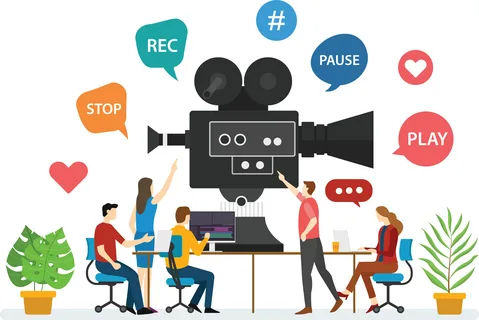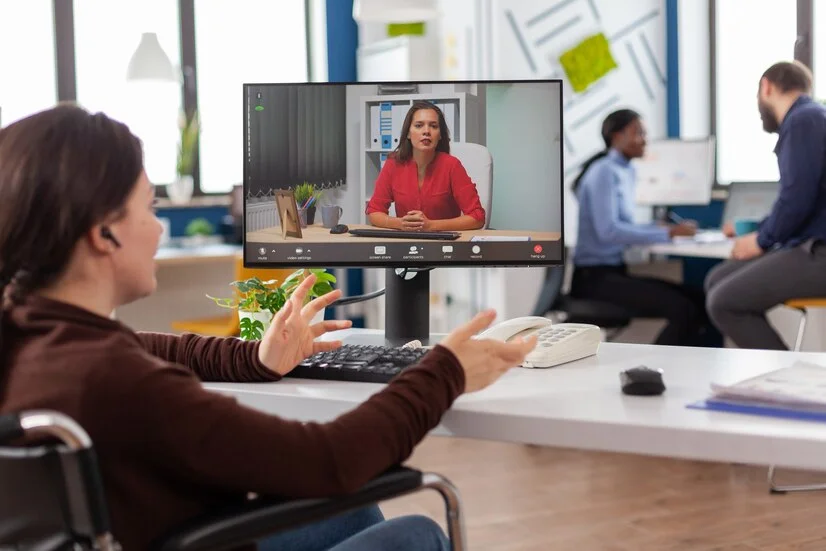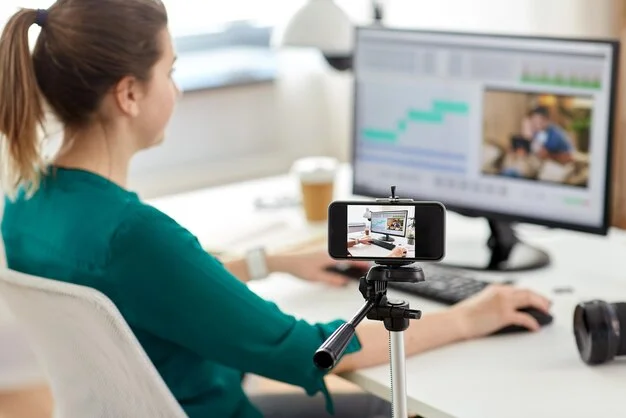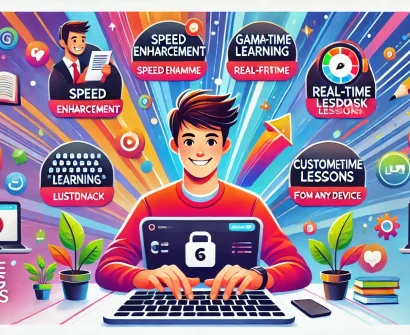How to Utilize Video Content for Online Teaching: 7 Powerful Strategies

Video is certainly one of the most significant sources of content in the era of digital learning. When the face-to-face teaching had shifted entirely to online, knowledge about using video content would be a great way to add excitement to the process of learning and keep the students interested. Here at kamranonlineteaching.com,
Bullet points of video content
- Create Engaging Tutorials: Use clear visuals and step-by-step instructions to explain concepts effectively.
- Incorporate Interactive Elements: Add quizzes, annotations, and clickable links to keep students engaged.
- Use Short, Focused Videos: Break down topics into bite-sized videos to maintain attention and improve retention.
- Leverage Live Streaming: Conduct live Q&A sessions or real-time lessons to foster interaction and engagement.
- Include Subtitles and Captions: Ensure accessibility for all students, including non-native speakers and those with hearing impairments.
- Repurpose Content: Turn recorded sessions into reusable resources, like a course library or mini-lessons for future use.
- Encourage Student Video Projects: Assign tasks where students create their own videos to enhance creativity and understanding
1. Create Engaging Introductory Videos
One of the best ideas for beginning an online course is by using an interactive introductory video. This allows you to familiarize the students with who you are, what to expect within the confines of the course, and what they should look forward to. A well-done introduction video will give tone to the rest of the course and can very well make the learning experience much more interesting by letting a bond between the instructor and student exist. Include video content that reflects passion and mastery over the subject matter.Visit our facebook page for more details
2. Use Videos to Explain Complex Concepts
Video Explanations for Complex Issues Video resources can make complicated problems into an understandable theme and explain them easily to the students. Using animated graphics, the most challenging topics explain the problem. For example, where the problem is complex using what can be an equation in mathematics, you can make a video explaining step by step how to solve the equation in detail.The beauty of this method is not only for the kids but also that they will learn better because students can mostly learn through a visual model.

3. Incorporate Interactive Video Content
The addition of interactive video content will increase students’ level of interaction by a significant number. There are some tools, such as Edpuzzle, through which you can insert questions in the videos; students will have to think while they see a video. They will take part more actively and learn more from what they are doing online.
4. Record Live Teaching Sessions
Recording live sessions is really a good way to create video content for the students. This way, you can refer the issues to the students on which they were unable to understand what was going on in the session. You could even use them again and again as extra resources for future courses. If you ensure that the quality of the video is good and topics that you discuss are adequately clear so that it makes it easy for your students, this will be ideal.
5. Share Student Testimonials and Success Stories.
Include testimonials and success stories in your video productions. This could be through short videos of past students telling how this course has impacted their lives. Testimonials are a perfect way of marketing your courses, as they show the difference your course makes, as well as your classroom method.
6. Utilize Screen Recording for Tutorials
Screen recording is a useful resource to create tutorials which would explain a given skill or usage of specific software. So, if you are teaching digital tools or platforms connected to your subject, you can lead them through step-by-step directions with the aid of a screen recording. Such video content is especially useful in the technology fields because it trains visual students on sometimes very difficult processes.

7. Encourage Student-Generated Video Content
The encouragement of students to bring out their video content development initiates creativity in them and activates learning. Assign projects where students are supposed to make short videos from the course material they have so far covered. This will not only help them support their reasoning but also give them confidence in presenting the information. You can then release these videos on your course site to enhance a feeling of community and teamwork on campus.
Conclusion
Using video content in your online teaching strategy isn’t something that can only be helpful, but it is a necessity for any possible learning environment. Using the seven powerful strategies outlined you will enhance your teaching effectiveness and let students have an awesome educational experience. At kamranonlineteaching.com we believe in preparing teachers for success in the online teaching landscape. We have successfully trained over 4,000 teachers and are leading the way in Pakistan at transforming classroom-based teachers into successful online teachers. Harness the power of video content and see your teaching impact soar!






